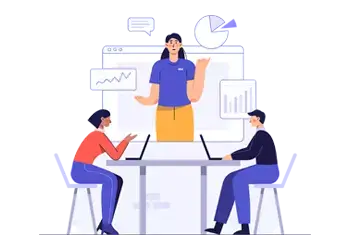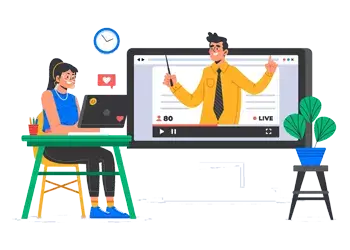PHP Training & Placement
100% Job Guarantee
Ranked #1 PHP Training Institute with Placements.
Besant Technologies provides the Best PHP Training in Chennai, Bangalore & Online with 100% placement. Learn PHP Course from Basics to Advanced and get real-time experience.
Enroll Now for Trending Courses with Job Assurance
15+ Years experience in Software Training & Placements
20+ Branches in Chennai & Bangalore
Download Brouchure
*Available for bothOnline & Classroom
For More Details: +91-8099 770 770
-
Course Syllabus Module 1: Introduction of Web & PHP
-
Course Syllabus Module 2: Exploring Data Types
-
Course Syllabus Module 3: Control Structures: Logical Expressions
-
Course Syllabus Module 4: Control Structures: Loops
-
Course Syllabus Module 5: User-Defined Functions
-
Course Syllabus Module 6: Debugging
-
Course Syllabus Module 7: Building Web Pages with PHP
-
Course Syllabus Module 8: Working with Forms and Form Data
-
Course Syllabus Module 9: Working with Cookies and Sessions
-
Course Syllabus Module 10: MySQL Basics
-
Course Syllabus Module 11: Using PHP to Access MySQL
-
Course Syllabus Module 12: Building a Content Management System (CMS)
-
Course Syllabus Module 13: Application CRUD
-
Course Syllabus Module 14: Regulating Page Access
-
Course Syllabus Module 15: Advanced PHP Techniques
-
Course Syllabus Module 16: Introduction to Object-Oriented Programming (OOP)
-
Course Syllabus Module 17: OOP in Practice
-
Course Syllabus Module 18: Working with Files and Directories
-
Course Syllabus Module 19: Sending Emails
-
Course Certificate
*You will get individual Certificates for each Course.















